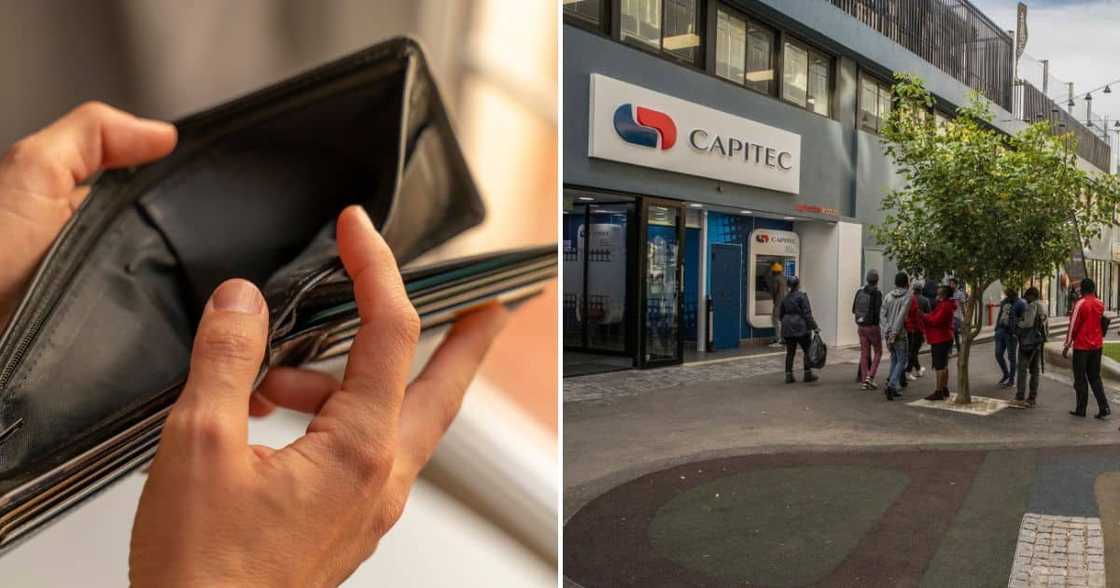Capitec Reveals South Africans Are Getting Poorer As Incomes Fail to Match Inflation, SA Blames SARB and Govt
- SA's second-largest retail bank, Capitec, has released data showing that South Africans are getting poorer year-on-year
- Capitec revealed that the failure to match incomes to inflation and unrelenting interest rate hikes have left citizens with less money to spend and save
- South Africans blame the government for failing to protect citizens and the South African Reserve Bank for continually increasing the repo rate
PAY ATTENTION: Celebrate South African innovators, leaders and trailblazers with us! Click to check out Women of Wonder 2022 by Briefly News!

Source: Getty Images
STELLENBOSCH - New data from Capitec has confirmed what South Africans have been feeling for a while: citizens are getting poorer.
Capitec provides banking services to 20.1 million clients, over a third of the South African population. The bank says its clients became poorer in the financial year that ended in February.
This comes as South African income levels battle to keep up with rising inflation, News24 reported.
Capitec data shows that South Africans have less disposable income than before
The data shows that Capitec's clients have spent 8% more on groceries and about 16% more on fuel than the previous year. This is despite reverting to affordable products to try to cut costs.
PAY ATTENTION: Click “See First” under the “Following” tab to see Briefly News on your News Feed!
Additionally, unrelenting interest rate hikes have resulted in an average increase of loan debit orders by 20% and vehicle finance by 15%.
The hike in interest rate comes as the South African Reserve Bank has been aggressively increasing the repo rate to keep inflation under control.
Capitec said that the data allows the bank to understand the impact of deteriorating economic conditions on South Africans.
South Africans blame SARB and government for deteriorating economic conditions
Below are some comments:
@Mkhonza19Thando said:
" 'Thuma Mina' and 'New Dawn' era."
@V_Class300d added:
"The New Dawn side effects proudly brought to you by Ramaphosa."
@Supercarjan claimed:
"I wonder why... thanks to the government and Reserve Bank."
@james_morake suggested:
"Good, now tell the Reserve Bank to stop with their interest rate hikes."
How will the repo rate increase impact ordinary South Africans? How it works and 4 other questions answered
In another story, Briefly News reported that the South African Reserve Bank set alarm bells ringing across the country when it announced that the repo rate would increase by 25 basis points on 27 January 2023.
Understandably, ordinary South Africans are worried much how the rate hike will hurt their pockets and how they can come out at the other end of the increase with their finances intact.
Briefly News reached out to independent economic analyst Professor Bonke Dumisa to get answers to the nation's most pressing questions.
PAY ATTENTION: Сheck out news that is picked exactly for YOU ➡️ click on “Recommended for you” and enjoy!
Source: Briefly News

